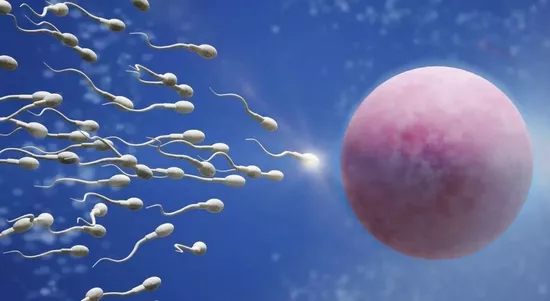A new technique for measuring the age of male sperm is expected to successfully predict the probability and time of pregnancy, according to a study recently published in human reproduction by researchers at Wayne State University School of medicine The study found that the sperm epigenetic aging clock may be a new biomarker to predict the time of pregnancy. The results also highlight the importance of male partners in reproductive success.

"In couples trying to conceive, full age is an important determinant of their reproductive ability and successful pregnancy, but full age does not include cumulative genetic and external environmental factors, so it can be used as an alternative measure of the 'real' biological age of cells." The lead author of the study, C.S. Said J. Richard Pilsner, director of molecular obstetrics and gynecology at the Mott Center for human growth and development, "Semen quality results using WHO guidelines have been used to assess male infertility for decades, but they still do not predict reproductive outcomes well. Therefore, the ability to capture sperm biological age may provide a new platform to better assess the contribution of male sex to reproductive success, especially in infertile couples."
Sperm epigenetic aging is the physiological aging of sperm, not the aging of time. The study found that couples with older male partners had a 17% lower cumulative probability of pregnancy after 12 months than couples with younger male partners. The study involved 379 male partners who stopped using contraceptives to get pregnant.
The study also found that smoking men had a higher degree of apparent aging of sperm.
The close relationship between sperm epigenetic aging and pregnancy probability, as well as slowing or reversing this association through lifestyle selection or drug intervention, deserve further study. In addition, it is also important to understand the potential relationship between sperm epigenetic aging and children's health and development, as older fathers increase the risk of adverse nervous system in their children.
"There is an urgent need for new male fertility indicators to assess the overall fertility success rate of couples in the general population." "These data suggest that the sperm epigenetic aging clock may meet this need as a new biomarker that can predict pregnancy success in couples who do not seek fertility treatment," Pilsner said
Although the actual age of both spouses is still an important predictor of reproductive success, the sperm epigenetic aging clock is likely to reflect the external and internal factors driving sperm biological aging. This summary measurement of sperm biological age is of clinical importance because it allows couples in the general population to understand their probability of pregnancy during natural intercourse, so as to inform and accelerate potential infertility treatment decisions.
Pilsner suggested that since these studies are mainly white, more diverse research groups are needed to confirm the link between sperm epigenetic aging and successful pregnancy in couples of other races and races.